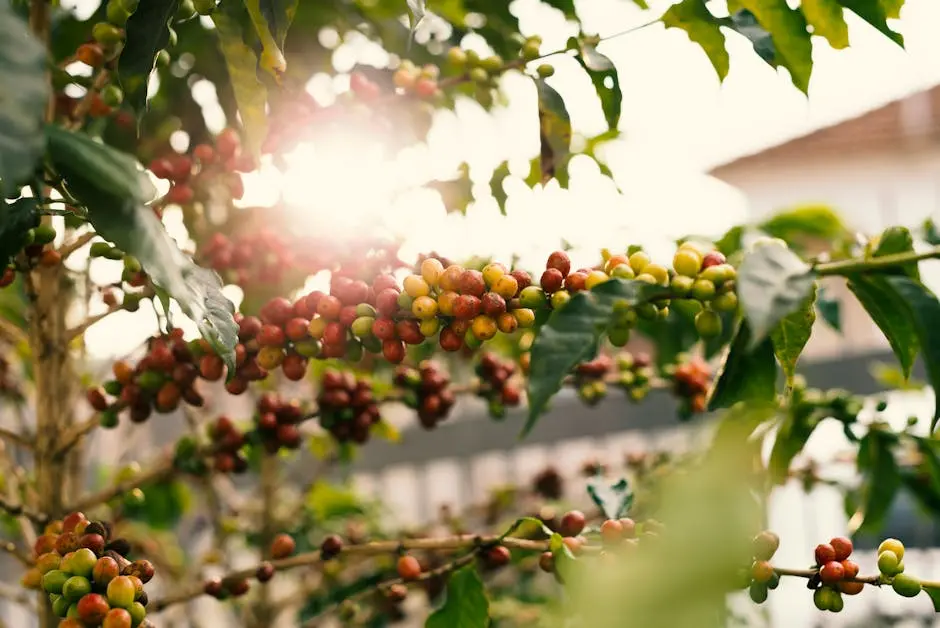What is Coffee Variety and Why is it Important?
Understanding coffee variety is essential for appreciating the flavors and qualities of your coffee. In this blog, we will explore what coffee variety means, why it matters, and how it influences our favorite brews.
What is Coffee Variety?
Coffee variety refers to the specific subspecies within the Coffea genus. Just as different grape varieties are used to produce unique wines, coffee varieties have distinct characteristics that influence flavor, aroma, and body.
There are two main species of coffee beans that dominate the market: Arabica and Robusta. Arabica coffee is known for its smoother, more complex flavors, while Robusta tends to have a stronger, more bitter profile. Each species further divides into numerous varieties, making the world of coffee incredibly diverse.
Understanding coffee variety is like learning a new language. It opens the door to discovering a wide range of taste profiles, aromas, and textures. Each coffee variety can evoke different feelings and experiences, enhancing your coffee journey.
How Does Coffee Variety Affect Flavor?
The flavor of coffee is influenced significantly by its variety. For instance, the popular Bourbon variety offers sweet, creamy notes and a balanced acidity, making it a favorite among many coffee enthusiasts.
In contrast, the Geisha variety is celebrated for its floral and jasmine-like aromas, paired with vibrant acidity. This variety’s distinctive taste is often described as complex and addictively fragrant, showcasing just how different coffee varieties can be.
Factors such as climate and altitude also play a role in flavor, but at the core, the variety itself dictates the baseline flavor profile. Therefore, knowing the variety can guide you to a brew that matches your preference.
By exploring different coffee varieties, you truly embark on a flavor adventure. Each cup brings with it a little story about the plant, the region it’s from, and the care taken to cultivate it.
Key Coffee Varieties to Know
Among the most notable coffee varieties are Arabica, Robusta, Bourbon, and Typica. Arabica is often regarded as the top quality coffee, favored for its sweet, soft, and complex flavors. Meanwhile, Robusta boasts a higher caffeine content and is more resistant to pests, making it a popular choice for espressos.
Bourbon and Typica are both Arabica varieties with rich histories. Bourbon is celebrated for its smooth sweetness and is commonly grown in Latin America, while Typica is known for its rounded flavor and was one of the first varieties cultivated.
Others, like Geisha, are often reserved for specialty coffee markets due to their unique profiles and complex flavor notes. Learning about these key varieties can significantly enhance the way you appreciate coffee.
Why is Coffee Variety Important for Producers?
Coffee variety is crucial for producers as it influences yield, quality, and marketability. Different varieties respond uniquely to environmental factors, and understanding these traits allows farmers to choose the best crops for their specific conditions.
For instance, some varieties are more resilient to climate change and pests, making them better suited for sustainable farming practices. This selection can also lead to better quality beans that fetch higher prices in the marketplace, benefiting the farmers economically.
Moreover, as consumer interest in specialty coffees grows, so does the demand for unique varieties. Farmers who diversify their crops and experiment with lesser-known varieties may find niche markets that appreciate their efforts.
How to Explore Different Coffee Varieties
Exploring different coffee varieties can be an exciting and enjoyable journey. A great starting point is visiting local specialty coffee shops, where knowledgeable baristas can guide you through tastings of different varieties.
Additionally, consider joining cupping events or coffee tasting classes. These immersive experiences allow you to compare flavors side by side, helping you better recognize the unique characteristics of each variety.
Don’t be afraid to experiment at home as well. Purchase a range of beans from different varieties and brew them using various methods. This hands-on approach can deepen your understanding and appreciation of coffee variety.
As you explore, take notes on what you like or dislike about each type. This will help you build a personal catalog of your coffee preferences and guide your future selections.
The Significance of Coffee Variety
In summary, coffee variety plays a pivotal role in defining the taste, aroma, and overall experience of coffee. By taking the time to learn about the different varieties, you can make more informed choices and enhance your coffee enjoyment.

